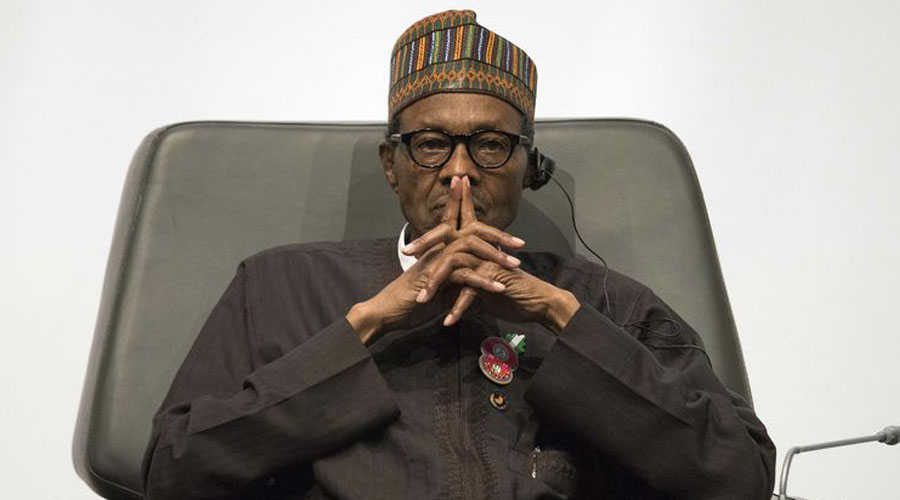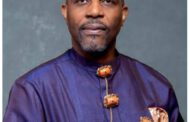The news that President Muhammadu Buhari returned over the weekend gladdened my heart. Even though I do not like Buhari’s governance style and do not believe that he has good leadership skills, it is my wish that Buhari should remain healthy and strong to complete his first term and even win a second term in office. Why do I want Buhari to remain strong and in power in spite of his leadership deficiency?
Since Nigeria’s independence, Buhari has been the most divisive president Nigeria has ever had. Unlike other Nigerian military or civilian leaders who tried to cloak their ethno-religious preferences, Buhari does not hide his. He does not even try to be politically correct. He just speaks and acts the way he feels in his heart. All you need to hear his unclothed thoughts is pray that he would travel abroad and respond to questions at a news conference or town hall meeting. That is probably the reason he rarely grants interviews in Nigeria.
Almost anytime Buhari speaks or acts, he divides Nigerians into North and South, Muslims and Christians, the All Progressives Congress and the People’s Democratic Party, those who gave him 97 per cent votes and those who gave him five per cent votes, and so on. Consequently, he gets passionate support from those who are in his “camp” and gets passionate opposition from those outside his “camp”.
In addition, Buhari ignites in many Nigerians that spirit to agitate for how to solve the structural problems of Nigeria. A conciliatory President would have made many Nigerians relax and hope that just by good governance Nigeria would become better one day. It happened during the months Prof. Yemi Osinbajo was the Acting President, especially the first time Buhari was away for about two months. Because of Osinbajo’s conciliatory stance, the line between supporters and opponents of the administration seemed covered. Osinbajo visited erstwhile opponents, made nice speeches, and took actions that seemed to calm frayed nerves.
It was obvious that Osinbajo wanted to be the leader of all Nigerians instead of the leader of those Nigerians who liked him. For example, when Buhari was away in February and there were street protests (initially scheduled to be led by musician Tu Baba) concerning the harsh economic times facing Nigeria, the police did not molest the protesters. Rather, Acting President Osinbajo sent out a message to them saying: “We heard you loud and clear.” That is the type of thing Buhari can never do as President. The way he would have reacted to those protests was to ensure that they were dealt with for allegedly breaching public peace and posing a threat to national security. If he were in a sweet mood, he would simply ignore the protesters without uttering a word to acknowledge their concerns.
However, it seemed that something happened to Osinbajo when Buhari returned in March. For when Buhari left this last time and was absent for over three months, Osinbajo seemed less conciliatory as before. The way the police manhandled those who protested against Buhari’s long absence and some other actions taken under Osinbajo seemed to suggest that he was briefed to act differently before his principal left on May 7 for his last medical care in London.
Buhari’s speech on Monday, August 21, 2017, after his return, showed that old habits, indeed, die hard. It was anti-climatic, given that the nation was informed two days earlier about the speech. For a President who had been away for 104 days on medical leave, one would have thought he would make a conciliatory speech thanking Nigerians for their steadfastness while he was away and assuring them that he was alright and stronger and ready to lead them into to become the nation of their dream. But he made no mention of his absence or health. Rather, he gave the nation a speech in which he called his compatriots “My dear citizens” rather than “Fellow citizens” and regaled the nation with words about “irresponsible elements” and the non-negotiability of Nigeria’s unity, while “charging the security agencies” not to relax.
Even though he tried to add a few other things, it was obvious that the focus of the President’s speech was a warning to those agitating for secession followed by those agitating for the restructuring of the nation. Also note that even though Fulani herdsmen have killed more Nigerians in the last year than Boko Haram or any other group, Buhari called it “farmers versus herdsmen clashes”. This means that in the eyes of Buhari, the issue of the killings and burning of villages by herdsmen is a minor matter of misunderstanding between two groups. And by mentioning the farmers first before the herdsmen, the implication is that the farmers are the aggressors while the herdsmen are the poor victims that merely try to defend themselves.
Therefore, the essence of the speech was to “warn” those threatening Nigeria with secession and restructuring that the lion king was back and would not tolerate any rubbish from any quarter. In plain text, the speech was not an address to the citizens of Nigeria. It was a speech directed at those viewed as “irresponsible elements” and what was in store for them.
There was no war scheduled to start in Nigeria in a day or two after the return of Buhari. So, there was no hurry to warn those planning to start a war or trouble. There was no confirmation that he had even transmitted a letter to the National Assembly about his return, so as to assume his office as President. Therefore, he was not yet the President of Nigeria by the time he was addressing the nation. And after transmitting that letter to the National Assembly, any speech from the President to the nation should have been more of a speech that would thank them, assure them and inspire them to be hopeful of a better tomorrow. Later, the President could then react to the so-called “irresponsible elements” by telling us what plans he had for them and the issues raised by them.
Buhari has a mentality that is required to jolt Nigerians out of their lethargy and docility. That mentality is: “You can make all the noise you want, but it can’t change a thing; for this is the way we have been doing things in this country. You either take it or leave it. But if you think you can start any trouble, we will give you double trouble and crush you.”
What this attitude does is that it angers those who think that they do not have a listening President. Rather than hope for a better tomorrow, many people feel that Nigeria is not headed in the right direction and ask for a better deal from Nigeria. That is why the calls for restructuring and secession have been strongest under the leadership of Buhari, even though he has only spent two years in office. The more he opposes them with his hard stance, the more they gather momentum.
Therefore, by the time he has spent eight years as the President of Nigeria, he would have jolted a sizeable number of Nigerians to wake up and find a lasting solution to the structural defects that have held Nigeria down for over 50 years. That is the greatest service Buhari would do for Nigeria, though inadvertently.
So, I wish President Muhammadu Buhari long life, good health and more years in office!
–Twitter @BrandAzuka
Orignally published in The Punch













